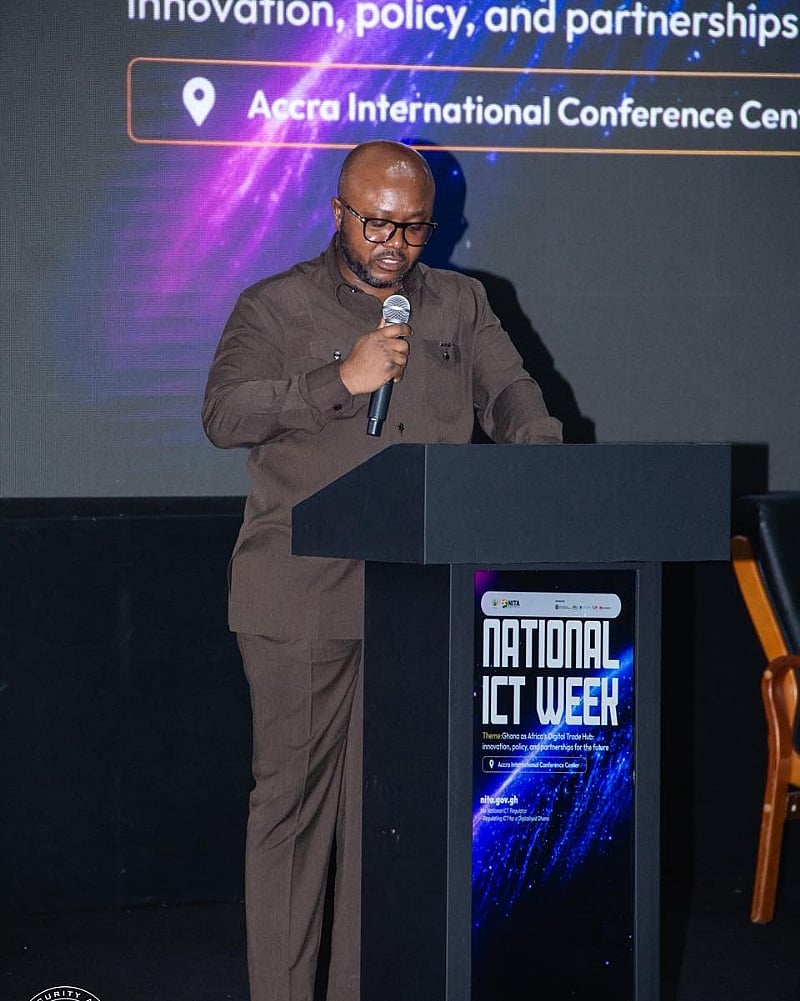Paragraph 1: The Evolving Cybersecurity Landscape in Ghana
Ghana’s rapid digital transformation has brought about significant advancements in various sectors, but it has also exposed the nation to increased cyber threats. The growing reliance on digital technologies for essential services, including finance, healthcare, and government operations, makes cybersecurity a paramount concern. As cybercriminals become more sophisticated, their attacks pose serious risks to national security, economic stability, and individual privacy. The recent collaboration between the Cyber Security Authority (CSA) and the National Information Technology Agency (NITA) during the National ICT Week 2025 highlights the urgency of addressing these challenges. The discussions centered on critical issues such as establishing stronger cybersecurity standards, securing sustainable financing for cyber defense initiatives, and fostering collective responsibility to build a resilient digital ecosystem.
Paragraph 2: The Crucial Role of Cybersecurity Standards
Robust cybersecurity standards are essential for establishing a secure digital environment. These standards provide a framework for organizations to implement effective security controls, protect sensitive data, and mitigate cyber risks. They also facilitate interoperability and information sharing among different stakeholders, fostering a collaborative approach to cybersecurity. Developing comprehensive cybersecurity standards requires extensive consultation and collaboration between government agencies, the private sector, and civil society organizations. These standards should address various aspects of cybersecurity, including data protection, incident response, risk management, and critical infrastructure protection. Furthermore, they must be regularly updated to reflect the ever-evolving threat landscape and advancements in technology.
Paragraph 3: Sustainable Financing for Cybersecurity Initiatives
Strengthening Ghana’s cybersecurity posture requires significant investment in infrastructure, technology, and human resources. Sustainable financing is crucial for implementing long-term cybersecurity strategies and ensuring the continuous improvement of cyber defenses. Government funding plays a vital role in establishing national cybersecurity programs, supporting research and development, and providing training opportunities. However, relying solely on government funding is insufficient. Public-private partnerships are essential to leverage the expertise and resources of the private sector, fostering a shared responsibility for cybersecurity. Innovative financing mechanisms, such as cybersecurity insurance and dedicated cybersecurity funds, can also contribute to a more sustainable approach.
Paragraph 4: Fostering Collective Responsibility for Cybersecurity
Cybersecurity is not solely the responsibility of government agencies or technology experts. It requires a collective effort from all stakeholders, including individuals, businesses, and civil society organizations. Raising public awareness about cyber threats and promoting safe online practices is crucial for creating a cybersecurity-conscious culture. Educational campaigns, public service announcements, and cybersecurity training programs can empower individuals to protect themselves from cyberattacks. Businesses must prioritize cybersecurity investments, implement robust security measures, and provide regular training to their employees. Civil society organizations can play a vital role in advocating for stronger cybersecurity policies and promoting ethical online behavior.
Paragraph 5: The Significance of the CSA-NITA Collaboration
The collaboration between the CSA and NITA signifies a crucial step towards strengthening Ghana’s cybersecurity landscape. The two agencies play complementary roles in ensuring a secure digital environment. The CSA is responsible for regulating cybersecurity activities, developing national cybersecurity strategies, and coordinating incident response efforts. NITA, as the government agency responsible for promoting ICT development, is instrumental in implementing cybersecurity measures across government agencies and supporting the growth of the ICT sector. Their joint efforts are essential for creating a cohesive and effective cybersecurity framework.
Paragraph 6: Building a Secure and Inclusive Digital Future for Ghana
As Ghana continues its digital transformation journey, cybersecurity must remain a top priority. The CSA and NITA’s commitment to collaboration, along with the emphasis on stronger cybersecurity standards and sustainable financing, are positive steps towards building a more resilient digital ecosystem. By fostering collective responsibility and promoting a cybersecurity-conscious culture, Ghana can create a safe, informed, and accountable digital space for all its citizens. This will not only protect the nation from cyber threats but also enable it to fully leverage the transformative potential of digital technologies for economic growth, social development, and national progress.














